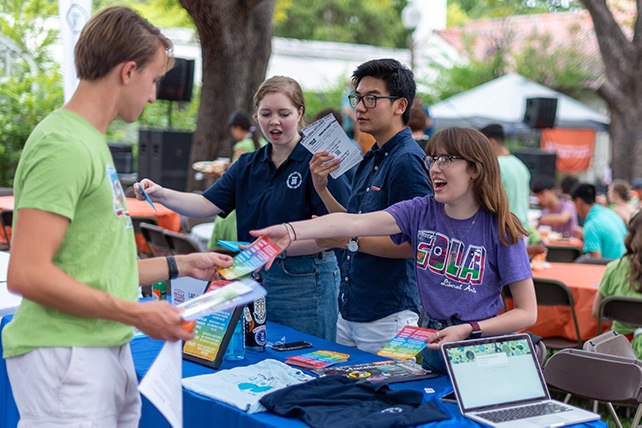About
About
The University of Texas Medieval Studies program draws on the strengths of distinguished faculty in fifteen academic units in the Colleges of Liberal Arts and Fine Arts.
Medievalist faculty offer seminars in a wide range of fields:


This caption describes the image above.

About
Edit Subhead Text
The University of Texas Medieval Studies program draws on the strengths of distinguished faculty in fifteen academic units in the Colleges of Liberal Arts and Fine Arts.
Medievalist faculty offer seminars in a wide range of fields:
|
|
In addition, faculty members in Law, Linguistics, Architecture, Government, and Theater and Dance strengthen our course offerings and thesis and dissertation direction.
Courses range from foundational core offerings that feature traditional methods and materials, to courses that introduce innovative, experimental, and theoretical work.
In support of our research and teaching, the University of Texas libraries hold some eight million volumes, feature many special collections, and offer digital access through several online databases to articles, books, manuscripts, and visual images. The Harry Ransom Humanities Research Center holds a significant collection of medieval manuscripts and visual images, including the Cardigan Chaucer, and substantial collections of early scholarly editions. A copy of the Gutenberg Bible is on permanent exhibition at the Ransom Center.
Governance
Director, three-year term--2019-2022: Martha Newman (Associate Professor, History and Religous Studies)
Co-Advisor:2019-2021: Daniel Birkholz (Associate Professor, English)
Co-Advisor: 2020-2022: Stephennie Mulder (Associate Professor, Art History)
Graduate Student Representative, 2020-2021: TBA

Governance
Director, three-year term--2019-2022: Martha Newman (Associate Professor, History and Religous Studies)
Co-Advisor: 2019-2021: Daniel Birkholz (Associate Professor, English)
Co-Advisor: 2020-2022: Stephennie Mulder (Associate Professor, Art History)
Graduate Student Representative, 2020-2021: TBA
